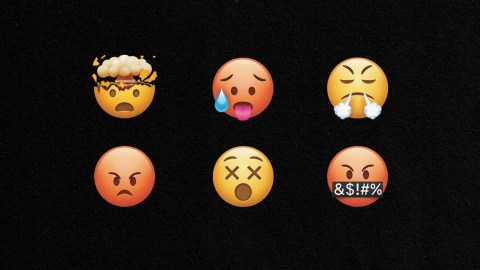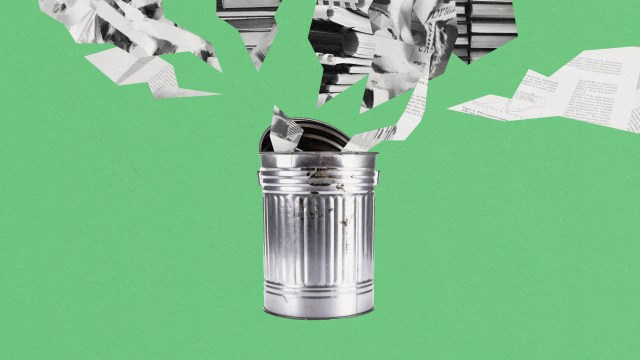Ask yourself these 4 essential questions to break the “outrage machine”

- Many of the most effective social movements in history were catalyzed by outrage channeled into action.
- Outrage becomes a problem when it becomes toxic — especially online — but there are steps we all can take to combat this.
- The version of your friends that appears online is not necessarily an accurate reflection of who they are.
Outrage is not inherently bad. The moral emotions we feel when we observe something is wrong in the world are critically important to a functioning society: They are the force that helps us mobilize and solve problems when things are broken. Channeled into the right vehicle, outrages can change the world for the better. Many of the most effective social movements in history — the U.S. civil rights movement, Gandhi’s campaign for an independent India, the women’s suffrage movement, the gay rights movement — were catalyzed by outrage channeled into focused, systemic action.
Outrage is a problem when it manifests into toxic outrage — when it shuts down debate, the ability to discuss an issue constructively with the opposite side, and cascades into violence. When the system of discourse itself is threatened by our moral anger, that’s when it needs to be addressed. That’s when it becomes far more dangerous to society.
Similarly, social media is not intrinsically harmful. It has tremendous power to do good, as when it brings to light previously hidden harms and gives voice to previously powerless communities. Every new communication technology brings a range of constructive and destructive effects, and over time, ways are found to improve the balance.
As individuals, we can help. There are a handful of things we can do as humans to detoxify our relationship with online outrage, and our interactions with it online. Each of these are specific solutions that can help us reclaim portions of emotional agency that we have lost in recent years. Remember that this isn’t just for us: by reducing our participation in the broken system of outrage profiteering and manipulation, we are actually helping reduce the overall levels of toxicity that exist in the world today — the stuff that our friends, family, and neighbors all feel.
And better, by selectively participating in the issues that speak to the best parts of us, we are increasing the effectiveness of our actions by staying focused on what really matters — opportunities for healthy outrage and mobilization in the future.
Today there are infinite channels through which to source overwhelming outrage-inducing stimulus. Online is where we usually find ourselves emotionally triggered the most. If you find yourself emotionally triggered by what you consume online, there’s a straightforward solution: Limit the amount of time you spend with it.
As you’re scrolling, ask yourself these questions:
- Is what I’m looking at something I can use to actionably improve my life or the lives of the people around me?
- Is this something that affects people I know personally?
- Is this a real problem, or might it actually be disproportionately covered?
- Look for regret. Do I find myself feeling better about my life and how I’m spending my time after using these tools?
If the answer to any of these questions after regular use is a clear no, try a simple experiment: Delete the app for a week. Use a content blocker on your phone and computer to keep you from automatically returning to the website. Chances are you’ll feel better, and find yourself with significantly more free time. The world will go on.
In the wake of the 2016 election, Americans experienced the Great Unfriending: One in six Americans lost a friend.
If you can’t limit that specific time (because you use social media at work, for example), then make a concerted effort to reduce your exposure to the worst stimulus within these feeds. Train your algorithms by aggressively unfollowing and blocking specific accounts that share/evoke the kinds of outrageous content that regularly cause you to regret your time. Most algorithms allow for you to select “I’d like to see less of this” or “not interested” options beneath content you don’t like. Your brain and body will thank you later, allowing you to focus your energy where it matters most.
In the wake of the 2016 election, Americans experienced the Great Unfriending: One in six Americans lost a friend due to opinions expressed online during that period. These weren’t just shallow friendships — they were largely real human connections. COVID-19 has only made this worse.
One of the most insidious things about the way social media has infiltrated our lives is how it has made our external narratives about people more important than personal narratives. A personal narrative is based on an independent relationship you have developed over time with someone in your life. An external narrative is one that has been superimposed upon your relationship through media you both consume. While these can be difficult to thread apart, it’s far from impossible. If the relationship is really important to you and still seems ideologically charged, consider taking a breath and steering conversations away from politics entirely. This can be done simply by acknowledging their concerns, and changing the subject to something you both care about.
The version of your friends you see online is not necessarily an accurate reflection of who they are. If you feel the emotional distance from them expanding, or feel yourself pulling away, try to speak with them in person, or send them a small note of kindness. Leading with this type of action can spark a positive feedback loop that can heal these divisions and help overcome the most personal casualties of the outrage machine.





